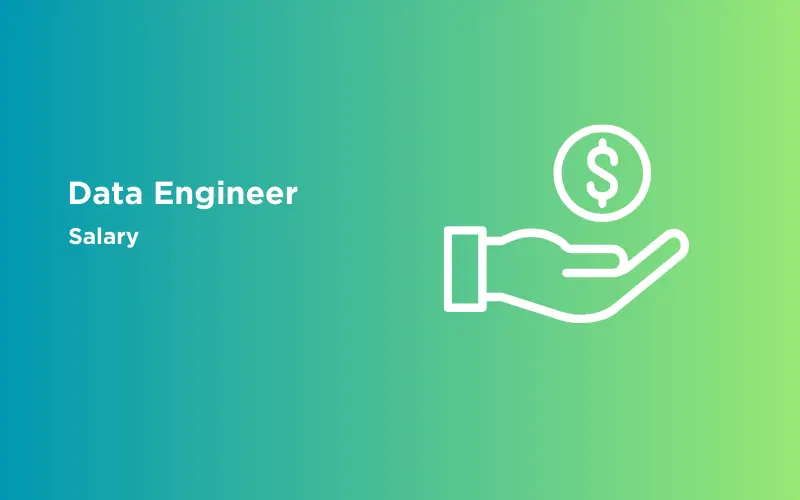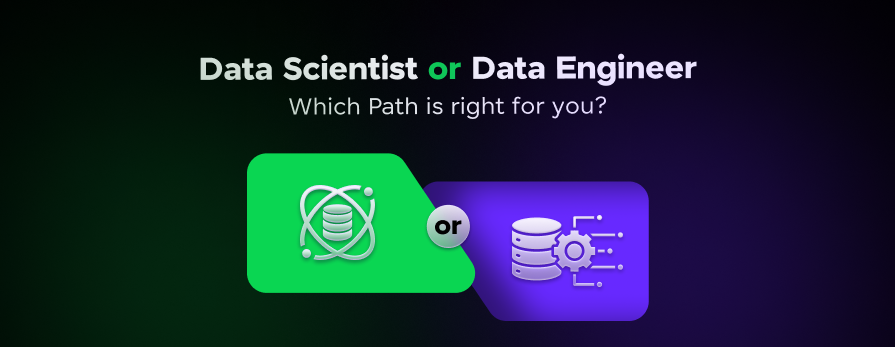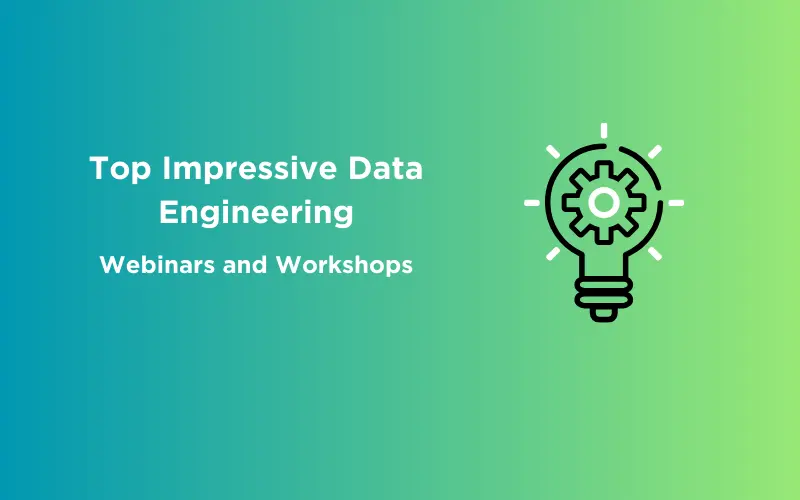
Data Engineer Salary in India 2023: You Should Know
Oct 24, 2024 5 Min Read 2429 Views
(Last Updated)
In the fast-paced digital age, data has become the lifeblood of businesses across industries. As companies strive to harness the power of data to gain valuable insights and make informed decisions, the demand for skilled professionals who can effectively manage and analyze data has skyrocketed. Among these professionals, data engineers play a crucial role in building and maintaining the infrastructure required to transform raw data into meaningful information.
If you are considering a career as a data engineer in India, one of the burning questions in your mind is likely to be about salary prospects. In this comprehensive guide, we will delve into the factors that influence data engineer salaries in India and provide you with valuable insights to help you navigate this exciting career path.
Table of contents
- Understanding Data Engineering and the Role of a Data Engineer
- Data Engineer Salary Based on Location
- Data Engineer Salary Based on Experience
- Data Engineer Salary Based on Skills
- Conclusion
- FAQs
- Q1. Do data engineers code?
- Q2. Do data engineers use Python?
- Q3. Is data engineering in demand?
- Q4. What are the key skills required to become a data engineer?
- Q5. How can I advance professionally as a data engineer?
Understanding Data Engineering and the Role of a Data Engineer

Before diving into the specifics of data engineer salary, it is essential to have a clear understanding of what data engineering entails and the responsibilities of a data engineer.
Data engineering is a discipline that focuses on designing, building, and maintaining the infrastructure and systems necessary for the collection, storage, processing, and analysis of data. Data engineers work closely with data scientists and other stakeholders to ensure that data is accessible, reliable, and secure, enabling informed decision-making and driving business growth.
As a data engineer, your role will involve:
- Designing and constructing data pipelines to extract, transform, and load data from various sources.
- Building and maintaining data warehouses and databases
- Developing and implementing data integration solutions
- Ensuring data quality and security
- Collaborating with cross-functional teams to understand data requirements and deliver actionable insights.
- Optimizing data infrastructure for performance and scalability
- Staying updated with emerging technologies and industry trends
Now that we have a clear understanding of data engineering and the role of a data engineer, let’s explore the factors that influence data engineer salaries in India.
According to Ambition Box, the average salary of a data engineer in India is 7.5 LPA.
If you want to get into this data engineering domain, here’s a complete guide on data engineering that explains all the concepts you should know.
Before we move to the next part, you should have a deeper knowledge of data engineering concepts. You can consider enrolling yourself in GUVI’s Big Data and Cloud Analytics Course, which lets you gain practical experience by developing real-world projects and covers technologies including data cleaning, data visualization, Infrastructure as code, database, shell script, orchestration, cloud services, and many more.
Additionally, if you would like to explore Data Engineering and Big Data through a Self-paced course, try GUVI’s Data Engineering and Big Data self-paced course.
Data Engineer Salary Based on Location

Location plays a significant role in determining data engineer salaries in India. The cost of living, demand for data engineers, and the presence of tech hubs all contribute to salary variations across different cities.
Here is a breakdown of the average data engineer salary in some key cities in India:
- Bengaluru: With its vibrant tech ecosystem, Bengaluru offers some of the highest data engineer salaries in the country. On average, data engineers in Bengaluru earn around ₹931,331 per annum.
- Mumbai: As a major business and financial hub, Mumbai offers competitive salaries for data engineers. The average annual salary for data engineers in Mumbai is ₹729,561.
- Pune: Known for its thriving IT industry, Pune is another city that offers attractive data engineer salaries. The average annual salary for data engineers in Pune is ₹861,549.
- Gurgaon: Gurgaon, a leading corporate and technology hub near Delhi, also provides lucrative salary packages for data engineers. The average annual salary for data engineers in Gurgaon is ₹987,847.
- Hyderabad: With its emerging tech scene, Hyderabad offers favorable salary prospects for data engineers. On average, data engineers in Hyderabad earn around ₹980,530 per annum.
- Kolkata: As a growing IT destination, Kolkata provides competitive salaries for data engineers. The average annual salary for data engineers in Kolkata is ₹524,000.
- New Delhi: The capital city, New Delhi, offers attractive salary packages for data engineers. On average, data engineers in New Delhi earn around ₹902,317 per annum.
- Ahmedabad: While the salary range in Ahmedabad may be slightly lower compared to other cities, it still offers good opportunities for data engineers. The average annual salary for data engineers in Ahmedabad is ₹450,000.
- Chennai: Chennai, a major IT hub in South India, provides competitive salary packages for data engineers. On average, data engineers in Chennai earn around ₹817,425 per annum.
- Jaipur: As a developing tech city, Jaipur offers promising salary prospects for data engineers. The average annual salary for data engineers in Jaipur is ₹560,000.
It’s important to note that these salary figures are averages and can vary based on factors such as experience, skills, and the specific company you work for. It’s also worth considering the cost of living in each city when evaluating salary offers.
Data Engineer Salary Based on Experience

Experience is a crucial factor in determining data engineer salary. As you gain more experience and expertise in the field, your value and earning potential tend to increase.
Here is a breakdown of the average data engineer salary based on experience levels:
- Beginner: As a beginner data engineer with less than 1 year of experience, you can expect an average annual salary of around ₹457,532. This is a solid starting point and provides room for growth as you gain more experience and skills.
- Early Career: With 1-4 years of experience, data engineers in the early stages of their careers can earn an average annual salary of around ₹720,395. This is a significant jump from the beginner level and reflects the value of experience in the field.
- Mid-Career: Data engineers with 5-9 years of experience can expect even higher salaries. On average, mid-career data engineers earn around ₹1,294,336 per annum. At this stage, your expertise and track record in the field can command a higher salary.
- Experienced: Data engineers with over 10 years of experience fall into the experienced category. At this level, salaries can exceed ₹1,867,992 per annum, depending on your skills, achievements, and the specific demands of the role. Experienced data engineers bring a wealth of knowledge and expertise to the table, making them valuable assets to organizations.
It’s important to note that these are average salary ranges, and individual salaries can vary based on factors such as the company, job role, and location.
Data Engineer Salary Based on Skills

The skill set you bring to the table as a data engineer can have a significant impact on your salary. Employers value specific skills and technologies that are in high demand in the industry.
Here are some key skills that can influence data engineer salaries:
- SQL: Proficiency in SQL (Structured Query Language) is essential for working with relational databases and extracting insights from structured data. Data engineers with strong SQL skills can expect higher salaries, with average annual figures reaching around ₹822,524.
- Programming Languages: Data engineers proficient in programming languages such as Python, Java, Scala, and C++ have an edge in the job market. These languages are widely used in data engineering for various tasks, including data processing, pipeline development, and data analysis. Average annual salaries for data engineers with programming language skills can range from ₹802,380 to ₹872,886, depending on the specific language and its demand in the industry.
- Big Data Technologies: Data engineers skilled in big data technologies such as Apache Spark, Apache Hadoop, and ETL (Extract, Transform, Load) tools are highly sought after. These technologies enable efficient data processing and analysis at scale. Data engineers with expertise in big data technologies can command higher salaries, with average annual figures ranging from ₹872,216 to ₹966,687.
- Data Warehousing Skills: Data warehousing is a critical component of data engineering. Proficiency in data warehousing concepts and technologies can boost your earning potential as a data engineer. Average annual salaries for data engineers with data warehousing skills can reach around ₹900,000.
It’s important to continuously update and enhance your skill set to stay competitive in the data engineering field. Emerging technologies and trends, such as cloud computing, machine learning, and artificial intelligence, can also influence salary prospects.
Kickstart your career by enrolling in GUVI’s Big Data and Cloud Analytics Course where you will master technologies like data cleaning, data visualization, Infrastructure as code, database, shell script, orchestration, and cloud services, and build interesting real-life cloud computing projects.
Alternatively, if you want to explore Data Engineering and Big Data through a Self-paced course, try GUVI’s Data Engineering and Big Data Self-Paced course.
Conclusion
As the demand for data-driven insights continues to grow, data engineers play a crucial role in building and maintaining the infrastructure required for effective data management and analysis. In India, data engineer salaries are influenced by factors such as location, experience, skills, and the specific employer.
Cities like Bengaluru, Mumbai, and Pune offer attractive salary prospects for data engineers, thanks to their vibrant tech ecosystems. Experience plays a significant role in determining salary levels, with mid-career and experienced data engineers earning higher salaries compared to beginners. Skills such as SQL, programming languages, big data technologies, and data warehousing can significantly impact data engineer salaries. Continuous learning and updating of skills are essential to stay relevant and competitive in the field.
Overall, data engineering offers promising career prospects and attractive salary packages in India. By building a strong skill set, gaining experience, and staying abreast of industry trends, you can position yourself for success as a data engineer in the evolving world of data.
FAQs
Q1. Do data engineers code?
Yes, data engineers are proficient in coding. They use programming languages such as Python, Java, Scala, and C++ to develop and maintain data pipelines, build data integration solutions, and optimize data infrastructure.
Q2. Do data engineers use Python?
Yes, Python is one of the most commonly used programming languages in data engineering. It is known for its simplicity, versatility, and extensive library ecosystem, making it a popular choice for data engineering tasks such as data manipulation, pipeline development, and data analysis.
Q3. Is data engineering in demand?
Yes, with the increasing volume and complexity of data, companies across industries are seeking skilled data engineers to build and maintain the infrastructure required for effective data management and analysis. The demand for data engineers is expected to continue growing as organizations recognize the value of data-driven insights.
Q4. What are the key skills required to become a data engineer?
To become a successful data engineer, you need a combination of technical and soft skills. Key technical skills include proficiency in programming languages (such as Python, Java, or Scala), SQL, big data technologies (such as Apache Spark or Hadoop), and data warehousing concepts. Soft skills such as communication, problem-solving, and teamwork are also essential for collaborating with stakeholders and delivering effective data solutions.
Q5. How can I advance professionally as a data engineer?
To advance professionally as a data engineer, it’s important to continuously update your skills and stay abreast of emerging technologies and industry trends. Participating in online courses, attending conferences and workshops, and working on real-world projects can help you expand your knowledge and expertise. Networking with professionals in the field and seeking mentorship opportunities can also provide valuable guidance for career growth.
















![Top 10 Big Data Project Ideas [With Source Code] 7 Big Data Project Ideas](https://www.guvi.in/blog/wp-content/uploads/2024/10/BigData_Project_Ideas.png)







Did you enjoy this article?